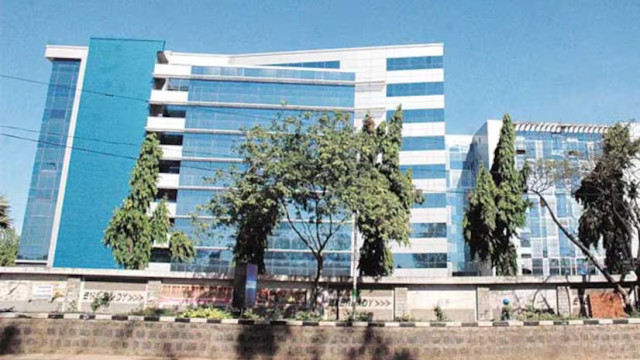Commercial Real Estate in India Set to Thrive with Proposed DESH Bill
- Posted on October 15, 2023
- Business
- By Arijit Dutta
- 604 Views
The proposed Development of Enterprises and Services Hub (DESH) bill holds significant promise for India's commercial real estate sector, according to Badal Yagnik, CEO of Colliers India. Yagnik emphasized that if the DESH bill is implemented as envisioned, it will provide a substantial boost for both commercial real estate players and Real Estate Investment Trusts (REITs).
 Image Source -www.business-standard.com
Image Source -www.business-standard.com
The proposed Development of Enterprises and Services Hub
(DESH) bill holds significant promise for India's commercial real estate
sector, according to Badal Yagnik, CEO of Colliers India. Yagnik emphasized
that if the DESH bill is implemented as envisioned, it will provide a
substantial boost for both commercial real estate players and Real Estate
Investment Trusts (REITs).
The DESH bill, introduced by the government last year,
aims to eliminate constraints surrounding business operations within Special Economic Zones (SEZs). This move has been widely discussed among players in the
commercial real estate sector, who anticipate its potential impact on
occupancies. Currently, approximately 12% of REIT players face vacancies, a
concern Yagnik addressed while dissecting the bill's provisions and its
implications on the demand and vacancies within the commercial real estate
sector.
In India, 25% of the expansive 690 million square feet of commercial real estate is located within SEZ developments. Interestingly, there is no significant price differential between SEZ and non-SEZ spaces, as SEZs are present in all four major markets. Yagnik predicts a surge in occupiers favoring these spaces once the bill is in effect.
Also Read: Major Changes Afoot: IOC Shelves Boxing, Welcomes New Sports For LA 2028 Olympics
However, Yagnik notes that post-bill implementation,
predicting price appreciation will be challenging, as it will largely depend on
market dynamics and the competition from non-SEZ spaces. Presently, the overall
vacancy rate in India's SEZ and non-SEZ spaces hovers around 15-16%, with
peripheral markets showing higher vacancy levels exceeding 20%. Despite this,
there has been a notable resurgence in demand post-COVID.
Yagnik highlights that while demand has returned, there is a shortage of quality real estate available in the core markets. This shortage is likely to drive occupiers towards SEZ spaces, creating a favorable scenario for both the commercial real estate sector and REIT players. The DESH bill, if implemented effectively, could mark a pivotal moment for the Indian commercial real estate landscape.




